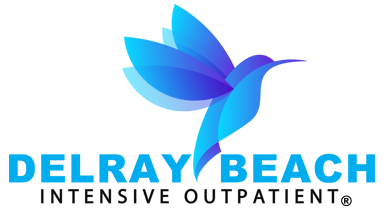Addiction is an incredibly complicated disease that can persist for many reasons. But, especially with certain highly physically addictive drugs—for instance, alcohol and opiates—the persistence of physical cravings for substances is a huge driver of continual abuse and relapses.
This is where the idea of medication assisted treatment comes in. While no medication can “cure” addiction, some medications can reduce these physical cravings, making a relapse less likely and protecting the progress that patients are making in their recoveries.
While many forms of medication assisted treatment exist, the one we have found to be most effective here at Delray Beach IOP is Vivitrol (Naltrexone). This drug is an opioid antagonist, meaning that it will block the patients’ opioid receptor sites and bond to them without producing any effects, thus preventing typical opiates from binding to them and having those effects.
In other words, patients who have taken Vivitrol and then attempt to administer opioids will not be able to get high, since the Vivitrol is blocking the action of those opioids. Since these opioid receptors are also involved in alcohol intoxication, Vivitrol also works to diminish alcohol cravings by making alcohol use less pleasant, though some signs of intoxication may still occur.
Vivitrol is itself non-addictive, and, unlike some other drugs that are used in medication assisted treatment, has no euphoric or psychoactive effects at all. And, though naltrexone can also be administered in an oral daily form, Vivitrol offers additional benefits because it takes the form of a long acting injection that only needs to be administered once a month. Since patients do not have to take it everyday, there is virtually no chance of them missing a dose, or of them deliberately forgoing one so that they can get high.
It’s also important that Vivitrol only be administered to a patient who has completed detox and achieved seven to fourteen days of abstinence. Otherwise, if a patient is currently on any opiate, even some typically used to assist with detox, their withdrawal symptoms will be made worse as Vivitrol instantly blocks their effect.
While Vivitrol does not eliminate the risk of relapse, it does greatly reduce it, by a factor of as many of seventeen, since patients realize they cannot get high even if they do attempt to administer drugs. Additionally, patients report that their cravings for substances while on the medication are more than fifty percent weaker. However, it is important that patients realize that there is no way to “overpower” the Vivitrol. If they attempt to do so, using more and more opiates because they do not feel their usual “high,” they may accidentally overdose.
Vivitrol can come with some side effects, like injection site pain, flu-like symptoms, difficulties sleeping, or increased blood pressure, but these tend to be mild and dissipate in the first few weeks of use. In rare cases, serious side effects like liver damage or pneumonia can occur due to Vivitrol use as well, so the drug should always be monitored by a doctor.
Finally, as discussed earlier, it’s important to remember that Vivitrol and all other forms of medication assisted treatment cannot undo addiction by themselves. Recovering addicts still need intensive psychological treatment and counseling to help them do the hard work of uncovering the roots of their addiction and learning healthier ways that they can cope with life’s stresses instead. An addict who does not deal with these underlying issues is liable to resume their use as soon as they get off Vivitrol, or to replace their former opiate or alcohol addiction with another addiction or unhealthy coping mechanism.
Still, by helping someone to break free of the cycle of physical dependence, Vivitrol can play an important role in many people’s recoveries. With diminished cravings for drugs, they will have more energy and psychological resources to pursue emotional, physical and spiritual recovery, and to move forward confidently into the next phase of their lives. To learn more about Vivitrol and about the top-notch treatment program we offer here at Delray Beach IOP, feel free to contact us anytime at 833.637.033.
